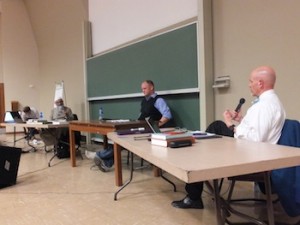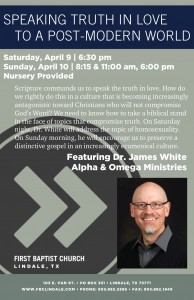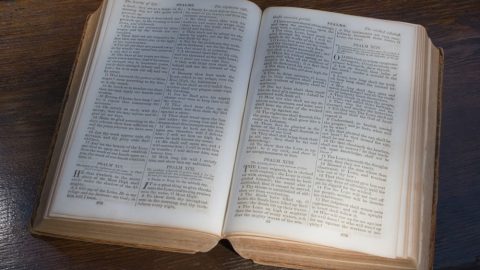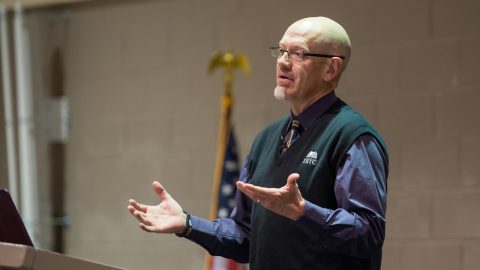As most of our readers know, I was greatly blessed to have the opportunity to travel to South Africa and engage in a series of six debates recently with defenders of the Islamic faith. This included two debates in mosques, and four at universities. My opponents were Bashir Varnia (in Lenasia), Yusuf Bux (in Johannesburg), Yusuf Ismail (in Potchefstroom) and Shabir Ally (in Erasmia and Pretoria). I also lectured at a number of locations, including Northwest University in Potchefstroom. This was the start of a very busy traveling season, as I just finished speaking at the Semper Reformanda Conference at Grace Family Baptist Church in Spring, Texas, pastored by Dr. Voddie Baucham, and I will soon be flying to Canada to speak at the Sola Scriptura Conference. This is, in fact, the busiest traveling month of my life, as my burgeoning frequent flier account and new status as a Platinum frequent flier can attest. I am very thankful for these wonderful ministry opportunities, and surely recognize how blessed I am to be able to serve in these locations.
 When I returned from South Africa I dedicated an edition of The Dividing Line to providing a report on the trip, as many in the listening audience had helped financially in making the trip happen, and many others had prayed for the ministry work there. I gave a rather full report, pretty much in chronological order of the events. Since my debates with Shabir Ally were the last ones, I had to hurry a bit as I had, as is my want, waxed a bit long in the previous portion of the hour. I had taken a bit of audio from the final two debates, using my LiveScribe pen, and had a portion of each cued up to play. I provided a brief portion of my comments on the gospel from the debate in the masjid in Erasmia, and then I commented on the much sharper exchange Dr. Ally and I had at the University of Pretoria. I had intended to play a portion of my cross-examination of Dr. Ally, and then from my final rebuttal period, along with his comment that I had lost the debate “so badly.” But I could only play a portion of what I had lined out due to time. But I felt what I played was sufficient to give folks an idea of the issue as it had come up, as it was one of the more interesting of the encounters we had in South Africa.
When I returned from South Africa I dedicated an edition of The Dividing Line to providing a report on the trip, as many in the listening audience had helped financially in making the trip happen, and many others had prayed for the ministry work there. I gave a rather full report, pretty much in chronological order of the events. Since my debates with Shabir Ally were the last ones, I had to hurry a bit as I had, as is my want, waxed a bit long in the previous portion of the hour. I had taken a bit of audio from the final two debates, using my LiveScribe pen, and had a portion of each cued up to play. I provided a brief portion of my comments on the gospel from the debate in the masjid in Erasmia, and then I commented on the much sharper exchange Dr. Ally and I had at the University of Pretoria. I had intended to play a portion of my cross-examination of Dr. Ally, and then from my final rebuttal period, along with his comment that I had lost the debate “so badly.” But I could only play a portion of what I had lined out due to time. But I felt what I played was sufficient to give folks an idea of the issue as it had come up, as it was one of the more interesting of the encounters we had in South Africa.
Dr. Ally has published his own comments on the debate. He was kind enough to send me the file right as I was leaving for Texas. I am just now getting to a response. I appreciate the opportunity to interact with his ideas, and to set a few things straight as well. Dr. Ally begins, “Usually after a debate Dr. James White would quickly post a written report on his blog saying how well he fared during the debate. This time around I did not see such a report.” Actually, as the blog will testify, I had not posted any such reports during the entire trip. My schedule was simply too packed and too busy to allow for blogging. Secondly, I find Shabir’s words here odd, as they seem to suggest that I seek to “spin” the debates, “saying how well he fared during the debate.” I do not think that such a suggestion is borne out by the documentation one could gather over the course of over one hundred and thirty public debates. While I will often comment on debates, unless my opponent makes comments, publishes articles, videos, etc., I prefer to let the debates speak for themselves. Given how long it often takes to prepare video and publish the debates, that means it is fairly rare for any in-depth discussion of the issues immediately after a debate. My schedule is normally so busy that I am moving on to another topic, preparation for another debate, for teaching, writing, etc., immediately upon completing a debate.
I would like to begin with Shabir’s summary:
In sum, my impression is that James’ thinking about the topic was imprecise, his treatment of the New Testament was non-historical, his reasoning was imprecise, and he did not answer my five main points. I would like to hear of the impressions of independent reviewers of the debate, especially after the recordings are posted online.
Of course, discussing this prior to the availability of the final video and audio products is a bit difficult. I have a low-quality audio recording, as I use a LiveScribe pen (I have often kidded Shabir that he is way behind me in the tech field, and here is a good example!). If I remember to do so, I may play the rest of what I had intended to play of my interaction with Shabir on the key issue of the Pretoria debate on the Dividing Line this coming week. But still, we are dealing with a debate that is not yet available for general public review as yet, so I am sure the discussion will be somewhat hindered by this reality. (Should Shabir wish to have the same mp3 recording I have from my pen, I would be glad to provide it to him).
If I may provide a corresponding paragraph to Shabir’s in a way of a general conclusion, I found Shabir’s thinking consistently inconsistent, as I always have. He adopts the most radically skeptical position on anything related to the New Testament, repeatedly identifies the theories of liberal critics as the views of “scholarship” in general, ignores the sound biblical scholarship of believing Christianity, and applies a standard of interpretation to the text of the New Testament that is grossly biased and often simply completely erroneous.
Now, summary statements are just that, and must be substantiated. I am confident a fair review of the entire debate will justify my conclusions. But if that was the only reason to engage in this review, it would be insufficient. The real reason I am writing this article, and, I think the real reason Dr. Ally wrote his article, has to do with my claim, in the debate, that Dr. Ally had, in reality, conceded the debate. I made this claim based upon the following:
During the cross examination period I asked Shabir to provide me with earlier Christian material than that found in the Carmen Christi, the hymn to Christ as to God, found in Philippians 2:5-11, that would demonstrate a view of Jesus contrary to that found in that primitive text. His response surprised me. He did not seek to identify a more primitive stratum of tradition. He did not question the provenance of the hymn fragment. Instead, he responded by pointing me to—the Old Testament! Now, of course, the Old Testament was not produced by early Christians, was it? It was completed centuries before the Christian movement began with Jesus of Nazareth. Our debate was about the earliest disciples of Jesus and what they believed about Him. Surely the Old Testament is relevant as a background document, but it seemed to me, and I leave it to the listeners to decide for themselves, that Shabir conceded, in his response, that the oldest specifically Christian tradition does, in fact, present the deity of Christ. Appealing to Shabir’s personal interpretation of the Old Testament is not sufficient to fulfill the burden of the debate topic.
But as I further pointed out, Dr. Ally tied himself in an even worse logical bind with the rest of his argument. He basically said that they earliest followers of Jesus were “monotheistic Jews” who could not have believed what Paul was teaching (clearly admitting Paul taught the deity of Christ, though errantly thinking that means he denied monotheism, an error that would have required Shabir to refute my exegesis of 1 Corinthians 8:6-7, which he was not able to do). Well, of course they were monotheistic Jews. That does not make them unitarians, however, as Paul was a monotheist Jew without embracing unitarianism. But, Shabir then went on to say that the deity of Christ developed slowly—first a slight elevation of Jesus, then a little more, to the status of a demigod, and then finally to full deity, etc., over time. This is one of the reasons Shabir (and all radical skeptical critics) have to move the gospels as far from the time period of Christ’s ministry as possible, to allow for this “evolutionary process” to take place. (I note in passing the popularity of putting John as late as 170 AD only a century ago—a theory blown apart by P52). But how can there be a slow evolutionary process like this, with the elevation of a mere man to the status of a demigod and then a full deity, if, in fact, the disciples of Jesus were monotheistic Jews? Would monotheistic Jews accept this kind of evolutionary development over time? Of course not! So, one has to modify the argument so that it is no longer monotheistic Jews who are in view in this development period, but, evidently, someone else—possibly pagans or polytheists or Greeks or something? We were not told when the transition supposedly took place. But once again we were left with a ton of assumptions and silence—we were told what the early Christians could not believe, but we were not given anything they left us to confirm the assertions made.
Now, after the cross-examination, I had another rebuttal period. I pointed out what had just happened, and laid out the problems with Shabir’s position. When Shabir rose to speak, he began by saying that he found it very strange that someone who had “lost the debate so badly” could claim to have won it! I was surprised at his tactic, but upon reflection, I fully understood it. He was under a great deal of pressure, having been introduced as the “leading” Islamic apologist, and so he needed to make a strong statement to deflect the argument that had just been presented. This he did in a way that riled up his base—but I don’t think it carried much weight with those who were seriously considering the issues.
With that background, let’s look at Shabir’s article.
James had the first 25 minutes to speak. Given the topic, it was necessary for James to show evidence that the original disciples considered Jesus to be God. Instead, he cited one verse from James, several from Paul, and presented a summary of the Gospel of Mark. My response, naturally, was that the original disciples of Jesus should have been his focus. James, the brother of Jesus, was of course an important disciple of Jesus, but he was not one of the twelve, and in any case the letter of James in the Bible is not dependably his. As for Paul, it is universally accepted that he was not a disciple of Jesus, and Mark is traditionally said to be a disciple of Peter and hence not himself a disciple of Jesus. In short, James had spent the bulk of his opening speech speaking off topic. He was merely proving that belief in the divinity of Christ was early. He did not prove that the original disciples considered Jesus God.
Observations:
1) James is considered one of the earliest writings in the NT, and hence is directly from the milieu of the earliest disciples, and hence is directly relevant. Dr. Ally failed to refute the argument made from 2:1 and the use of the phraseology τοῦ κυρίου ἡμῶν Ἰησοῦ Χριστοῦ τῆς δόξης by James.
2) The Carmen Christi, and the expansion of the Shema in 1 Corinthians, likewise come from the earliest stratum of tradition available to us, hence are directly relevant to the thesis of the debate.
3) Mark has been consistently cited by Shabir as the earliest gospel—his entire presentation is dependent upon Markan priority not being a theory (as it is), but an absolutely established fact (something he claims, but which is admitted by all to be a theory, not a fact). Hence, it represents the earliest gospel material from his own perspective, and the consistent testimony the book bears to the person of Jesus the Messiah as the Son of God and the Son of Man is unquestionable.
4) John was an original disciple of Jesus, yet he wrote late, and if I had cited him, Shabir would have rejected him. If I cited Matthew, he would have rejected him as late. I utilized what a historian would recognize comes from the “primitive tradition” material of the New Testament.
5) Dr. Ally presented no manuscript evidence, historical evidence, patristic citations, or internal evidence, to substantiate his allegation that James did not write James. He simply made the allegation based, as he so often does, upon the fact that you can find a “scholar” anywhere who will say anything. Just as I can find a scholar, somewhere, to dispute any text in the Qur’an, Shabir can do so with any text in the Bible. But this is not a sound method of debate or argumentation.
6) Dr. Ally likes the phrase “universally accepted.” Except, I have never heard this phrase used in a truthful fashion. It is way over-blown, and hence subject to immediate refutation. If here Shabir means Paul was not one of the original Twelve, of course not. But unless he is going to say Jesus could not appear to Paul, then I will assume he will consistently also say that Muhammad could not visit with Gabriel, or ascend to heaven and visit with the prophets, either, right?
7) I am thankful that Shabir has admitted that I “proved” that “belief in the divinity of Christ was early.” I take this as a great step forward! But how on earth can he say this while maintaining his “evolutionary process” argument? How can it be both early, as well as late? This makes no sense to me.
8) Evidentially speaking, of course, I did, in fact, provide strong evidence relating to the earliest followers of Jesus, because I used the earliest sources we have that represent them! And given that Dr. Ally would later admit he could not present any earlier sources, and had to move beyond the Christian era to the Old Testament, I simply have to ask him what evidence could I have presented that would have fit into his artificial parameters? What historians would agree with him in dismissing James, proto-Pauline traditions, and the Markan materials, as valid in such a debate?
Dr. Ally continued:
For my part, I gave five main reasons for thinking that the original disciples did not consider Jesus God. First, the disciples were Jewish monotheists. They would not have considered anyone but Jehovah as God. Second, the speeches in Acts of the Apostles in the Bible are not entirely dependable. Whereas the disciples can be seen in these speeches to grant some lofty titles to Jesus, these are Luke’s own composition, not the actual speeches of the disciples.
1) Dr. Ally’s first point is illustrative of the circularity of the Islamic position. It assumes what it has yet to prove: that monotheism = unitarianism. Yes, the first disciples were Jewish monotheists. But it does not follow that when that one God revealed Himself in the person of Jesus Christ that they would reject that revelation. There were, in fact, sign posts in their own Scriptures to such a truth, such as the visit of Yahweh to Abraham in Genesis 18-19, and the prophecies of the coming One who would be אֵ֣ל גִּבּ֔וֹר , El Gibbor. And the intertestamental literature provides further rumination on the personification of the Word of God, etc. So blandly asserting an unthinking unitarianism on the part of the Jews of the Second Temple period is not the same thing as affirming their strong dedication to monotheism. Further, ironically, Shabir admitted that Paul himself identified Jesus as Yahweh. Given his presuppositions, this is why he questions Paul’s status as a monotheist! Yet, Paul’s confession of monotheism is clear, his Jewishness is undisputed, and yet he believed Jesus was Yahweh in human flesh.
2) Again we have Dr. Ally’s radical skepticism at work without the provision of evidence upon which to accept his assertions. Where is the evidence that would allow us to convict Luke of dishonesty? Many a sound scholar has poured over Luke’s materials and come away utterly amazed at the writer’s accuracy in language and historical prowess. Of course, Dr. Ally may not be familiar with such studies, as he seems significantly more well read in the radical skeptics than in those who do not begin with accusations of deceit or error on the part of the biblical writers.
I would like to take this opportunity to point out an amazing inconsistency in the common Islamic argument, one that is forced upon the Muslim apologist by the nature of his religious texts. The Qur’an provides us with direct quotations of Jesus in its pages. I will not take up space to provide examples, as they are well known, and the point is not disputed. What I wish to point out is that there is not a single one of the “scholars” Dr. Ally constantly relies upon for his disputation of the accuracy of the New Testament who would for a moment countenance the claim that the Qur’an has any relevance to the historical Jesus, nor that any of the words it attributes to Jesus have any historical validity whatsoever. But despite this, I must assume (and stand ready to hear from Dr. Ally if his view is different) that Shabir believes, implicitly, that every word attributed to Jesus in the Qur’an is perfectly accurate as well as historical. So, for example, I would like to ask Dr. Ally to publicly confirm for all of his followers and readers that he believes that Jesus the Messiah, son of Mary, actually spoke these words from his cradle:
Indeed, I am the servant of Allah. He has given me the Scripture and made me a prophet. And He has made me blessed wherever I am and has enjoined upon me prayer and zakah as long as I remain alive and [made me] dutiful to my mother, and He has not made me a wretched tyrant. And peace is on me the day I was born and the day I will die and the day I am raised alive. (Surah 19:30-33).
Having confirmed or denied the historical veracity of these words, I will ask Dr. Ally to tell us which of his favorite skeptical historians would actually say there is the slightest chance that these words actually go back, historically, to the man, Jesus of Nazareth. Would Jimmy Dunn? Fitzmyer? Brown? Which of Dr. Ally’s stalwarts would support his belief at this point? Further, we happen to know of an apocryphal story, from the Arabic Infancy Gospel, that parallels this story quite closely. Would it not be consistent with the methodology and scholarship Dr. Ally utilizes for him to recognize this as the source of this saying in the Qur’an? If not, why not? Is Shabir Ally open to admitting that the Qur’an draws upon uninspired myths and legends in its text? Will Dr. Ally comment on the studies of Nasr Abu Zayd at this point? It would seem that Dr. Ally’s preference for liberal scholarship and form criticism would lead him naturally to follow Abu Zayd’s conclusions concerning the Qur’an. If not, why not? I look forward to his consistent response.
[continued in Part 2]





